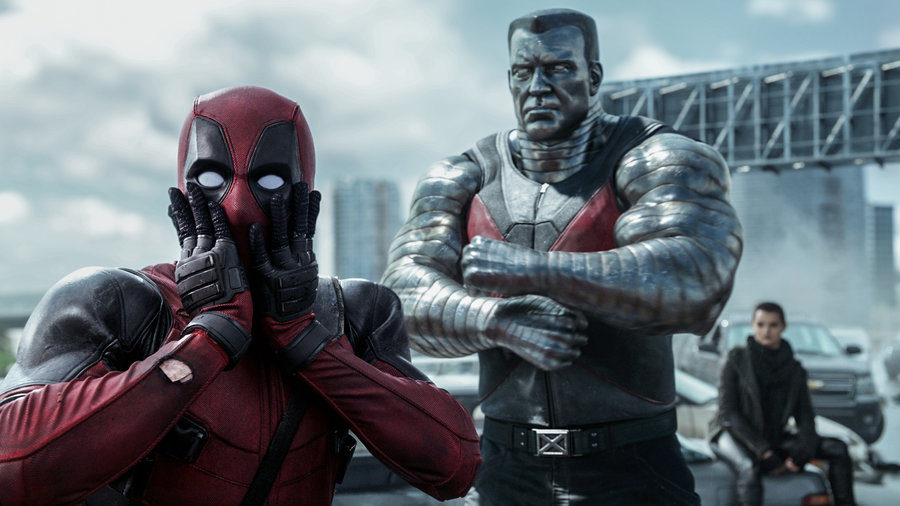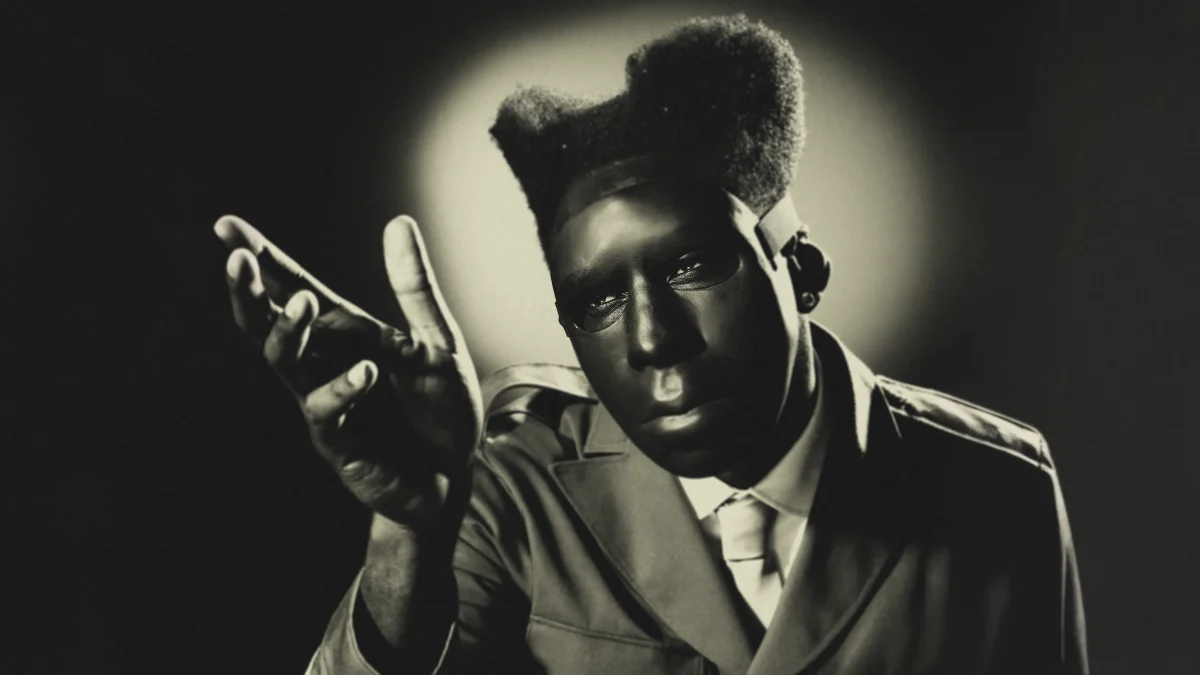By Corcoran O’Leary
Deadpool has made a big splash lately, garnering enough support to snatch the largest opening of a “R” rated movie ever.
First gaining a considerable amount of attention for being the first “R” rated movie of the new Marvel Cinematic Universe, it went on to dazzle audiences and recieve positive reviews from critics. Many have commended it as being a fresh superhero movie simply because of its irreverent tone, fourth wall breaks, and it’s unrestricted raunch. However, it fails to create something truly original in any form. The movie hurls criticism at the current superhero genre, poking fun at various tropes and plot elements that plague the superhero movie, and then it continues on to adhere to the exact same pitfalls it just insulted. Think of standard superhero movies as a Prius; instead of using a different car, Deadpool just settles for painting flames on the side and laughing and the other lame, one-toned Priuses. The fact that Deadpool is self aware is not enough to elevate it above the standard fare, a fact the writers seem to be oblivious to. After deciding to shoot for the hard “R” rating, it seems as if they decided that they reached their quota for being different, and decided to write a movie structured the same way as previous superhero films. Oh, but this movie can use the ‘f” word. How groundbreaking. What is frustrating about this movie is that the nature of Deadpool’s character really lends itself nicely to creating a truly subversive piece of cinema, an opportunity that largely seems spoiled.
For those unfamiliar with the character of Deadpool, he is a self-aware anti-hero who has a penchant for breaking the fourth wall. The comics are extremely meta, even going so far as telling the story of Deadpool breaking out of the comic-book universe and killing the Marvel employees who write his comics.
The virtues of a character like this coming to the big screen are immediately apparent to me. The pointed and irreverent humor would lend itself nicely to a story populated with unique plot elements and a structure that subverts the tropes of the Marvel-Era superhero films. However, the criticisms lobbed at the industry come in a somewhat slapdash manner, never quite trying to make a point and just settling for a little wink towards the audience letting them know it’s aware of the various cliches in the industry. Then Deadpool continues on to present us with these cliches, making it an extremely frustrating fim.
Now there is no way to tell how much of this was the writers’ or the director’s fault, or just the studios refusing to accept anything that transcended the standard hero flick. It seems as if the last time the director of a superhero film tried to do something unique, it ended badly. Just read about Josh Trank for Fantastic Four and Edgar Wright for Ant Man, with the latter’s script being called, “ the best script that Marvel had ever had,” by Avengers director Joss Whedon. This was after Wright left the project due to clashing with the studio. The juggernaut that is now Marvel Film Studios hasn’t been too risky in the past, and it feels as if the only “risk” they allowed Deadpool to take was being rated R. I take problem with a movie that gains praise simply for being rated “R”, for this alone is not an achievement. I guess we have Marvel Studio executives to thank for being so “daring” to put out an R rated superhero film, something that clearly is revolutionary (Given you ignore such recent films as Watchmen, Kick-Ass, Super and Dredd).
Writers Rhett Reese and Paul Wernick don’t seem to trouble themselves with creating memorable action scenes or settings, and again it seems as if the action scenes are coasting off the fact that they are gruesome. The movie opens with a clever idea, wherein our titular character has forgotten his ammo bag, and is forced to take down a convoy of soldiers with just 12 bullets. It’s an entertaining sequence that was well shot and left me wondering what else the movie had up its sleeve. Sadly, this turns out to be nothing. I was hoping for a scene that actually put our anti-hero Deadpool in danger, given that his regenerative powers allow him to take bullets and lose limbs with little repercussions. It would have been nice to have seen Deadpool up against a power that actually had the ability to easily harm him, adding tension. However, the final fight scene is formulaic with an extremely forgettable background and has a couple of inconsistencies that took me out of it.
While the source material doesn’t necessarily lend itself easily to creating a world, I would’ve appreciated more scenes that took place in atmospheric places. Many of the dialogue scenes were shot blandly in simple locations. We catch a glimpse of Wade Wilson’s shady work, but never delve further into developing a feeling for the type of sketchy world he works in.
Deadpool states at the beginning of the film via breaking the 4th wall that this is actually a love story. The final fight falls flat sadly, with the emotional heft was lacking, giving us the thinnest of expository scenes that established Wade Wilson loved his girlfriend. Yet his girlfriend isn’t a fully developed character, not even taking the title for supporting character taking up the second most screen time, this being seized by Wade Wilson’s friend and seedy bartender Weasel, well-portrayed here by T.J. Miller. The film also features Colossus and Negasonic Teenage Warhead, but they play here more as plot elements, stuck in the film for a more dramatic final fight. Superhero movies prior have had a hard time balancing action and development, Deadpool could have seriously benefitted from creating more elements to invest the viewer emotionally. I didn’t find myself caring all too much about the characters motivation, and while it is nice to have a superhero story told where the entire world isn’t at stake, the smaller motivations only work when we can sympathize with the characters drive.
Even though the movie has its faults, part of me says that I shouldn’t be so disappointed in what it was. This movie is a Marvel movie, one created to simply entertain, not offer any unique filmmaking methods or introspection. Part of me believes that if this movie had come out four years ago I wouldn’t have even noticed these faults, but as the super-hero genre gets more saturated, I long for a movie that changes the basic workings of these films. I thought Deadpool would present Marvel with a great chance to do this, but Marvel doesn’t seem too interested in this prospect. Outside of being-chuckle worthy, Deadpool brings nothing new to the table and doesn’t seem to really try.





